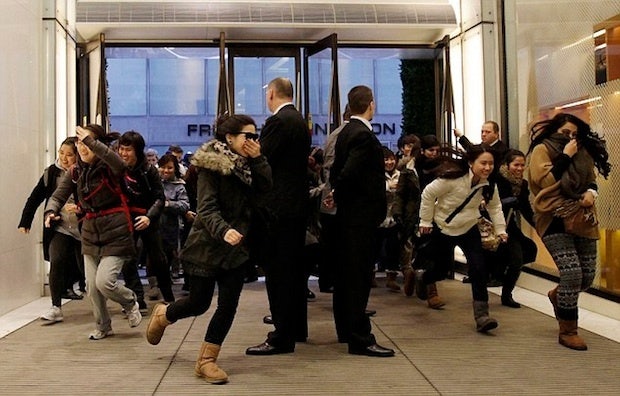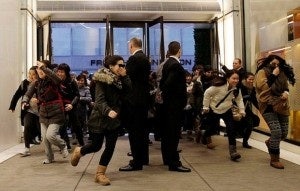
I still remember the first time I landed at London Heathrow airport at the age of 11; I spoke little English. At customs, the officer looked down at me and asked questions, but I refused to say a word. I’m not sure if I was just scared, afraid to say something wrong, or afraid of being misinterpreted. But the officer finally gave up talking to me and stamped my passport after reviewing my documents. However, I heard him whisper, “Why bother coming here if you can’t speak English?” Chinese overseas students were rare at that time, and I was determined to learn good English in order to make friends and blend in.
Now, things have changed. Chinese consumers can speak in their native language, Mandarin, and shop globally.
Below are a few photos taken during sale season at Selfridges in the UK. Yes, it is shocking how many Asian faces we see in the crowd. And apparently, most of them are Chinese.
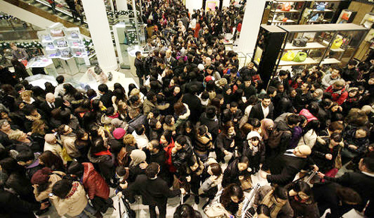
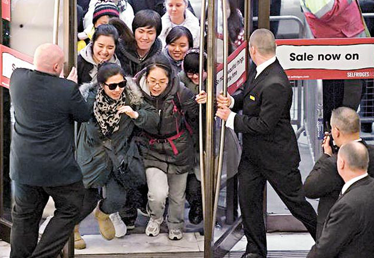
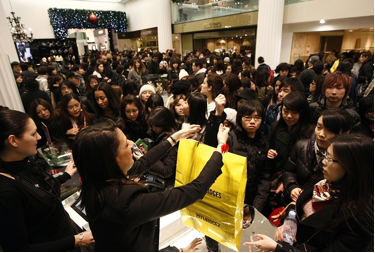
Harold Tillman from the British Fashion Council said on average, each mainland Chinese citizen spent ₤1,058 (US$1,705.90) in London between January and October 2011. This number was 10 times higher than the average spending for a British consumer. However, Mr. Tillman believes there’s plenty of room for this number to grow, as Chinese travelers are the fastest-growing group of big spenders in the world today. During the Chinese New Year 2012 holiday alone, mainland Chinese traveling overseas spent $US7.2 billion; this is 20+ percent growth over 2011.
Nonetheless, many feel that the only thing that’s limiting the spending of Chinese travelers in their countries is the visa application process. The UK is not a part of the Schengen visa scheme, which is preventing it from an additional ₤1 billion worth of sales generated from Chinese travelers. Hence, many top fashion retailers, along with the British Fashion Council, would like the UK government to streamline the visa application process for Chinese consumers.
Obviously, the concerns of the fashion industry are not going to be a top issue at Parliament meetings. So retailers have taken this into their own hands, hiring native Mandarin-speaking sales staff and working to cater to Chinese consumers.
Harrods, one of the oldest and most prestigious shopping destinations in London, now has over 70 Mandarin-speaking salespersons, and is putting over 100 Unionpay machines into use to encourage the growth of mainland Chinese shoppers.
Many countries are doing exactly what UK is doing now, as are retailers not only in the fashion industry but also the luxury industry worldwide. I’m not sure if Chinese consumers by themselves can be the answer to the downturn in the world economy, but I am happy that there’s no need for me to be a 24/7 translator for my friends when shopping overseas.
In addition to her work as a social media and PR professional, blogger and brand consultant, Hong Kong-based Elle Lee now hosts the new online program
Weibo Today#
. Check out Elle's personal site at elleiconlee.com and follow her on Twitter at @ElleIconLee or Sina Weibo at @ElleLeeHK.
